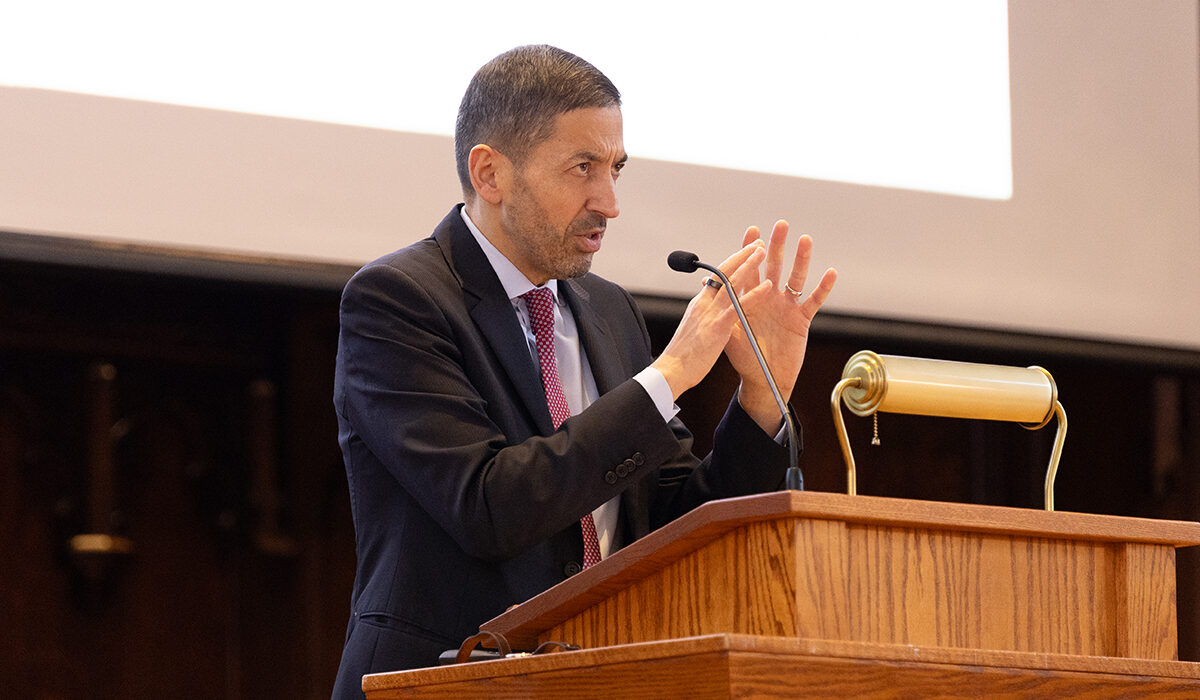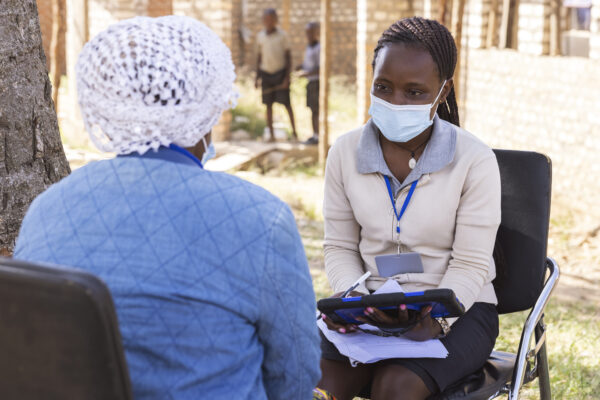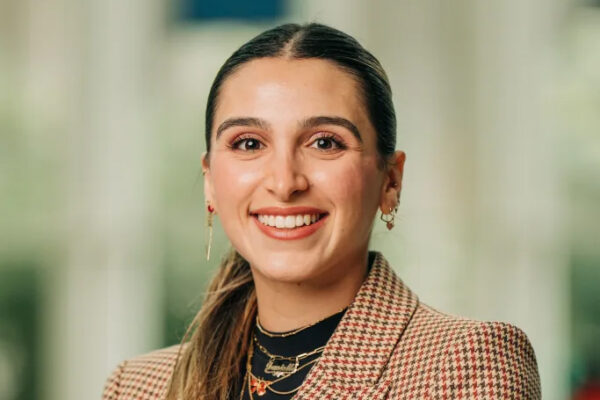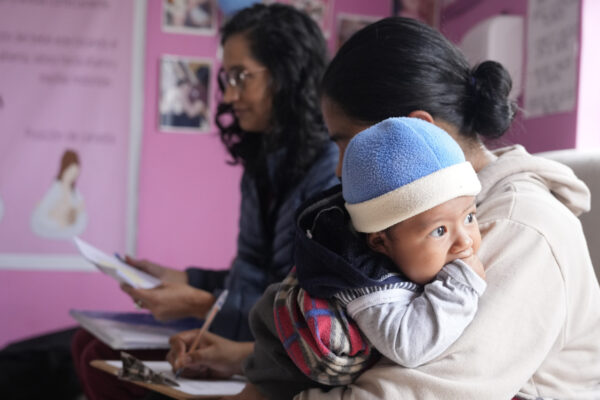A new era for public health has begun at Washington University in St. Louis, marked by a two-day celebration welcoming Sandro Galea, MD, DrPH, as the inaugural Margaret C. Ryan Dean of the School of Public Health and the Eugene S. and Constance Kahn Distinguished Professor in Public Health.
The events, held Jan. 29 and 30, featured a public lecture as part of WashU’s Assembly Series and a formal installation ceremony honoring the leaders and donors who have laid the foundation for the new School of Public Health. The ceremony signified the launch of WashU’s first new school in a century, an ambitious undertaking aimed at transforming public health research, education and practice.
A bold vision
In his Assembly Series talk, “Why Health? Reimagining What We Think About When We Think About Health,” Galea delivered an unflinching look at the past, present and future of public health.
Amid shifting federal policies and potential cuts to public health funding, Galea addressed the moment head-on: “I realize I am speaking about health at a particularly propitious time for health in the country,” he said. “It is because this is such a challenging, confusing, unclear time that we should be doing this. The promise of universities is that they will be here long after all of us have passed through, and our job is to generate ideas that transcend politics of the moment.”
Speaking to a packed audience in Graham Chapel, he framed health as the foundation of human progress — one that is historically fragile and deeply influenced by social and economic forces. “The point of health is that we all have the opportunity to live full, rich lives and do whatever we want with those lives,” Galea said.
With more than 80 data-rich slides, he traced the evolution of public health, highlighting the dramatic rise in life expectancy since the 19th century, the devastating impact of COVID-19, and the staggering gaps in health equity.
“We inflected life expectancy down by about two or three years during the COVID pandemic, essentially globally,” Galea noted, adding that the U.S. already was falling behind other high-income nations before the pandemic.
The crisis, he argued, is preventable. “The full suite of what makes us healthy or unhealthy is preventable,” he said, citing risk factors such as high blood pressure, air pollution, smoking, and poor diet — all of which could be addressed through policy, education and systemic change rather than medical intervention alone.
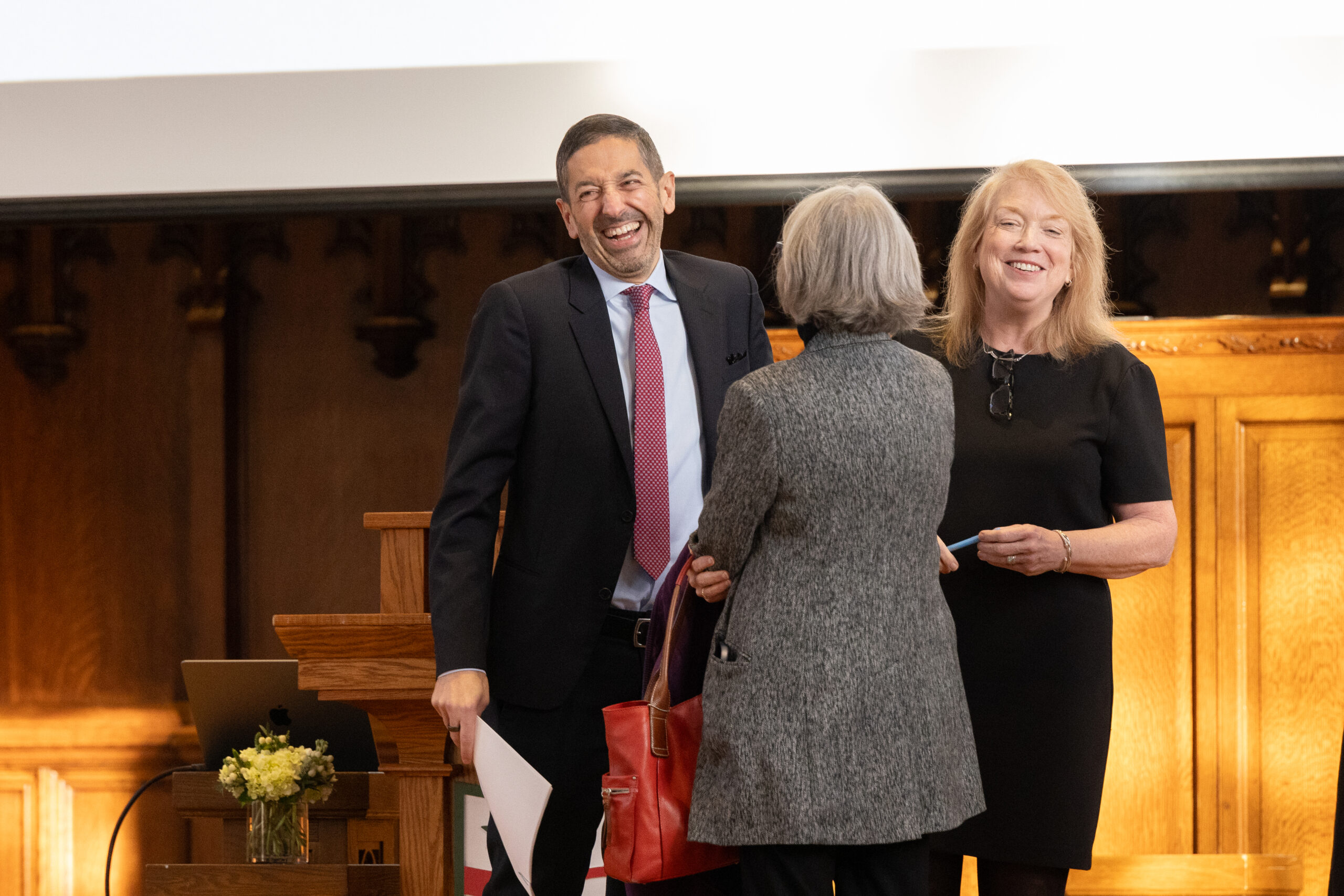
The U.S. spends 40% more on health care than any other nation, primarily on hospital care and physician services. Americans claim to value health, he said, but funding tells a different story. Resources overwhelmingly go to treatment rather than prevention, ignoring the social and structural determinants of health.
Health is shaped by much more than medical care. It is influenced by smoking, drinking, sexual activity, living conditions, education, job status, family support and income, among other factors, he said. Addressing health requires an interdisciplinary approach, spanning social work, engineering and the arts and sciences. This vision has led to the creation of a public health school designed to bridge these disciplines, fostering collaboration and innovation.
Galea emphasized that equity must be central to public health. “There should be no conversation about health without equity at the heart of that conversation.”
He pointed to stark gaps in life expectancy, varying by geography, race and income. “Why is it OK that if you’re born in Nigeria, you can expect to live 25 years fewer than if you’re born in Japan? Why do we accept a six- or seven-year gap in life expectancy between U.S. states?” he said.
Public health requires looking beyond personal biases and considering the well-being of entire populations, he said.
He noted that public trust in science is declining, especially in conservative areas where health often has been overlooked. “Our job is to bring health to all. That means understanding where people are. That means communicating with where people are.”
His call to action was clear: “Health is not a red or blue issue — it is purple. We all want to live long, healthy lives. If we fail to communicate that, we fail at our mission.”
Galea used a metaphor to illustrate the essence of public health, comparing it to caring for a goldfish — a concept that inspired the name of his blog, “The Healthiest Goldfish.”
“I love my pet goldfish. I want it to be healthy. So I tell it to swim around this bowl 10 times clockwise, 10 times counterclockwise. I feed it organic food and take it to the best goldfish doctor. And then one day, I find it dead. How could it be? The reason my goldfish died is because I forgot to change its water,” he said.
The “water” in this analogy is the world around us — the policies, structures and environments that shape health outcomes. “Our job is to create a world that generates health,” he said.
Galea believes universities must lead the charge. “This is why universities exist,” he said.
From vision to leadership
One day later, the university formally installed Galea as dean in a ceremony at Hillman Hall.
Beverly Wendland, provost and executive vice chancellor for academic affairs, introduced Galea’s family. Galea’s wife, Margaret E. Kruk, MD, MPH, is joining the WashU Medicine faculty as the Distinguished Endowed Professor of Health Systems & Medicine in the Department of Medicine and as director of the universitywide QuEST Center. In a surprise moment, their children, Oliver and Isabel, arrived to celebrate their father.
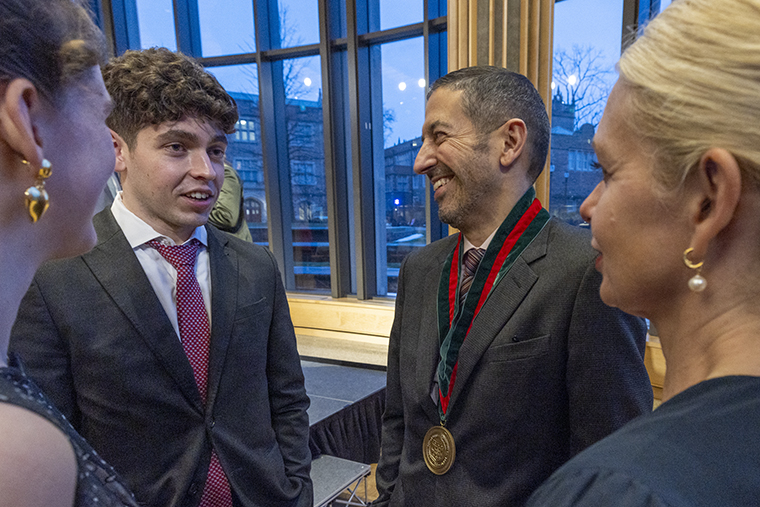
Wendland is leading WashU’s “Here and Next” 10-year strategic plan, which has resulted in several key initiatives, including creation of the School of Public Health. “Our Here and Next plan outlines our vision to be a global hub for solutions to the most complex issues facing our world,” Wendland said. “Our School of Public Health, under Dean Galea’s direction, will most certainly bring us closer to that vision.”
Chancellor Andrew D. Martin recognized the occasion as a defining moment for WashU. He acknowledged the dedication of faculty and staff who helped establish public health as an academic discipline and the role of philanthropic partnerships in supporting innovation and excellence.
The ceremony honored the generosity of the Ryan and Kahn families, whose gifts established both the deanship and professorship in public health.
The Ryan family’s gift was deeply personal. Their late daughter, Maggie Ryan, a 2016 WashU graduate, was passionate about public health and leadership. Martin said Maggie embodied the “best of WashU as a leader who aspired to become an agent of positive change in the world.”
Maggie died in a car accident just days after earning bachelor’s degrees in anthropology and in women, gender and sexuality studies, all in Arts & Sciences. “Maggie liked hard challenges, and she had a saying, ‘I’ll find a way, or I’ll make one,’” said her father, Tony Ryan. “We look very much forward to seeing how the entire university contributes, under your leadership, Dr. Galea, with the new School of Public Health to find ways and make ways to improve the public health of all children and adults, locally, nationally and around the world.”
Gene and Connie Kahn, longtime supporters of WashU, were recognized for their deep investment in public health education and research. “As a veteran of public health at WashU, this is an important milestone,” Gene Kahn said. “The past and present leadership teams deserve both acknowledgement and a great deal of credit for the solid foundation that Sandro inherits for the school to build upon. We have every confidence that Sandro has the experience, knowledge and passion to lead this charge.”
David H. Perlmutter, MD, executive vice chancellor for medical affairs and the George and Carol Bauer Dean of WashU Medicine, introduced Galea, highlighting his distinguished career in epidemiology and research on mental health and trauma. Galea’s work has documented the consequences of trauma and conflict worldwide — examining the massive toll of the 9/11 terrorist attacks, Hurricane Katrina, conflicts in sub-Saharan Africa and the U.S. wars in Iraq and Afghanistan.
Chancellor Martin placed the medallion around Galea’s neck, formally installing him as dean and distinguished professor. “WashU welcomes you to our faculty, and we pledge our support to you as you help us shape the thought leaders of tomorrow,” Martin said.
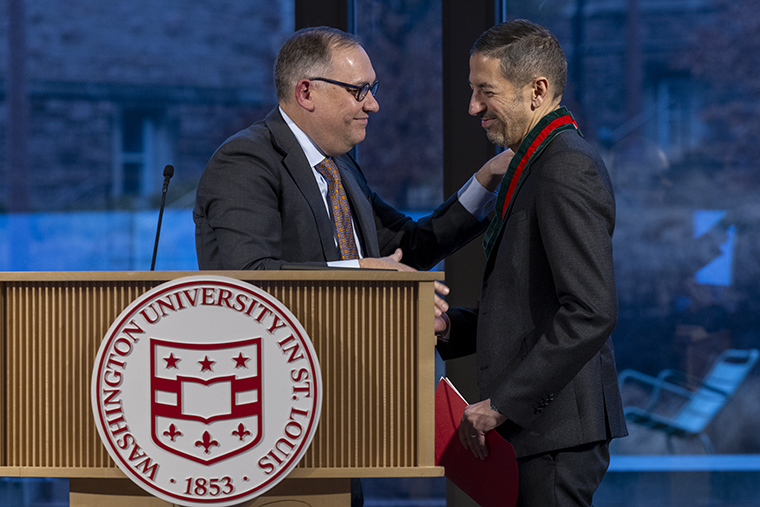
In his remarks, Galea outlined his vision for public health leadership. “We are meeting today in challenging times,” he said. “Disruption can destabilize, but it can also yield the makings of a better world.” He emphasized that strong leadership in health will be essential for navigating these challenges while seizing new opportunities.
Galea called for a new kind of public health leadership — one that is forward-thinking, inclusive and unafraid to tackle the toughest challenges.
True leadership, he said, requires curiosity and inquiry, a willingness to challenge assumptions and push for bold solutions. It also demands principled action, confronting uncomfortable realities like racial and economic disparities rather than avoiding them, he added.
Yet vision alone is not enough, Galea reminded the audience. Public health leadership must be pragmatic, balancing big ideas with concrete action. “Vision without execution is hallucination,” he said. The real challenge lies in making incremental progress without losing sight of long-term goals.
With Galea’s leadership, WashU’s newest school embarks on its mission — not merely as a place of learning, but as a force for public health innovation, equity and global impact.
